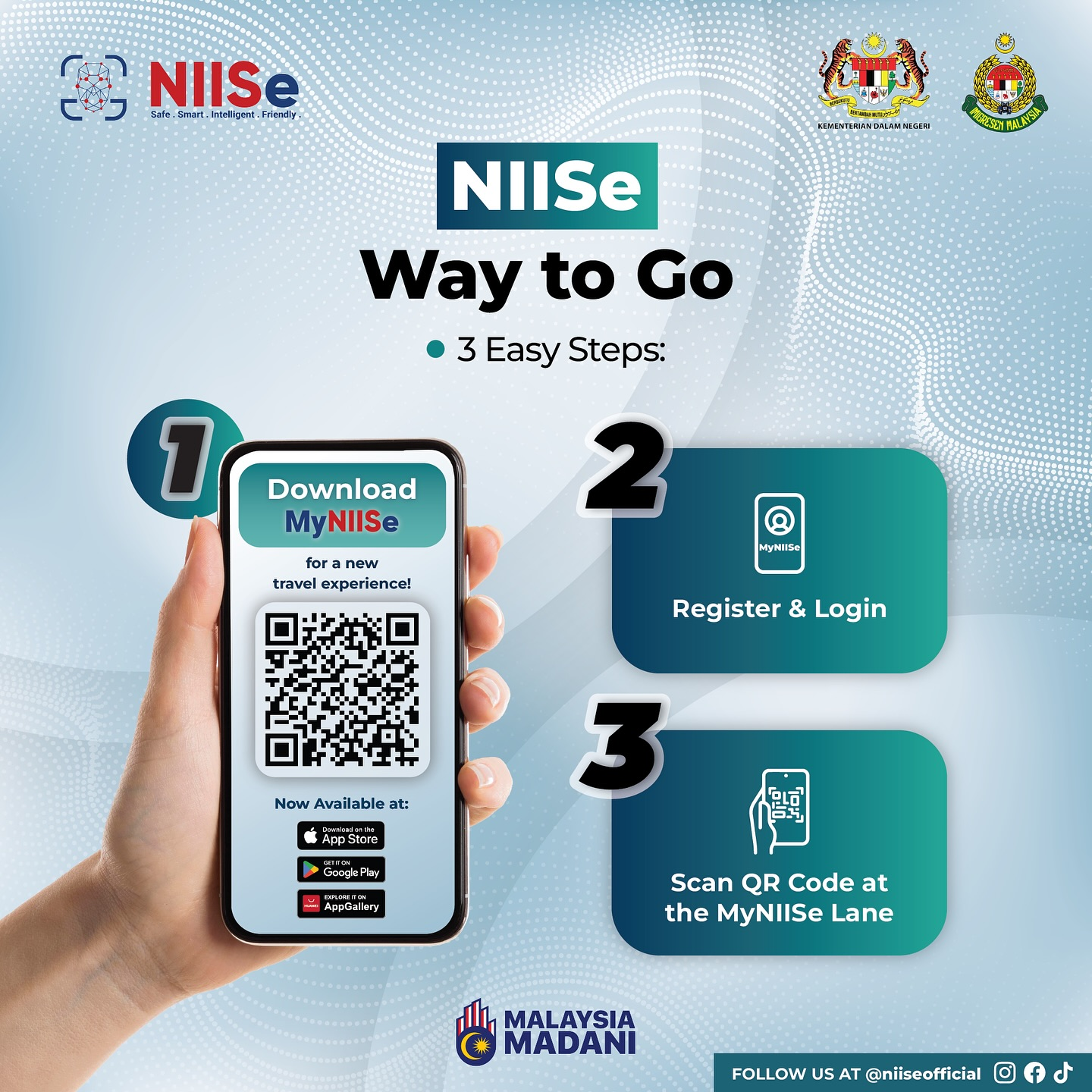Malaysia kicked off its National Integrated Immigration System (NIISe) trial on 22 Sep 2025, enabling Singaporeans and other foreign travellers to clear Johor land checkpoints using QR codes instead of passports.
However, several Singaporean users encountered trouble registering on the MyNIISe app required for the process, according to The Straits Times.
While some users managed to generate QR codes successfully and completed immigration clearance quickly on the trial’s opening day, others struggled with registration failures and application freezes.
Singaporeans who eventually registered successfully indicated they were only able to do so after switching to a Malaysian mobile network.
Rollout of the QR Code Trial
The National Integrated Immigration System (NIISe) was launched by Malaysia’s Home Ministry for a five-month trial running until 28 Feb 2026.

The trial began with implementation at car lanes at Bangunan Sultan Iskandar (BSI) and Sultan Abu Bakar Complex checkpoints, linked to Singapore via Woodlands Causeway and Tuas Second Link respectively.
Group crossings using one QR code — covering all vehicle occupants — are supported, in contrast to Malaysia’s previous MyBorderPass app, which required each traveller to scan separately.
How the App Works
Singaporeans and other foreigners can download the MyNIISe app, select “foreign visitor”, and register by filling in relevant personal details.

A QR code for immigration can be generated for individual or group travel.
Malaysian users registering with MyDigital ID saw faster onboarding compared to foreign visitors.
During the trial, users are still required to bring their physical passports or travel documents.
On 20 Sep 2025, Malaysia’s Home Affairs Ministry announced that the trial’s initial phase would be limited to 16 car lanes at Bangunan Sultan Iskandar and 12 car lanes at Kompleks Sultan Abu Bakar, which have been configured to support the app.
Expansion Plans
The Malaysian Home Ministry has stated plans to extend QR code clearance to other modes of transport and to roll out the system at major international airports, including the two terminals of Kuala Lumpur International Airport, Penang, Kuching, and Kota Kinabalu.




